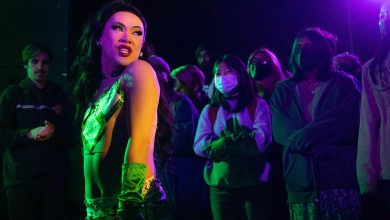Ma Rainey: The Mother of the Blues
 It’s 1928 and you’re a queer woman of color. Sounds like a difficult situation, doesn’t it? You’ve only recently gained the right to vote, while your rights to marriage and reproductive health are inconceivable. And that’s just the beginning. Would you ever expect to find a popular artist who was like yourself, one that did not hide her identity but owned it, one who could be successful despite the climate of your era? Probably not, considering that there are few artists like that today. You’d be wrong there.
It’s 1928 and you’re a queer woman of color. Sounds like a difficult situation, doesn’t it? You’ve only recently gained the right to vote, while your rights to marriage and reproductive health are inconceivable. And that’s just the beginning. Would you ever expect to find a popular artist who was like yourself, one that did not hide her identity but owned it, one who could be successful despite the climate of your era? Probably not, considering that there are few artists like that today. You’d be wrong there.
The Mother of the Blues was a bisexual woman. Her name was Gertrude “Ma” Rainey, and in 1928 she recorded “Prove It On Me,” a declaration of sexuality as brave as anything done by Adam Lambert or Lady Gaga. In paper advertisements for this song, Rainey took the persona of a butch lesbian bar-goer, shown chatting with two women and unconcerned about the cop watching her on the other side of the street.
In “Prove It On Me,” Rainey toys with the unthinkable. Definitively coming out would have ended her career, but Rainey still manages to make her message clear without using incriminating language. The chorus starts out, “They say I do it, ain’t nobody caught me/Sure got to prove it on me,” a statement that is evasive but not fearful.
Rainey achieved incredible success during the Harlem Renaissance, as did several other queer artists, including Bessie Smith and Langston Hughes. In most other eras, possibly including the current one, this would be unlikely. Contrary to popular belief, our culture does not always grow more accepting or progressive as time passes. I have often heard feminists and queer activists say that equal rights will come in a matter of time, or that we just have to wait, but this is not a productive attitude to have. The intellectual and forward-thinking atmosphere of the Harlem Renaissance was created by its participants, not simply because the time was right.
This kickass woman, founder of one of few exclusively American genres of music, refused to follow the expected model for a singer of her time. Though she could have been arrested for going to a gay bar or even dressing the way she did, she performed boldly and without compromise. Rainey didn’t wait for the climate to change — instead, she brought her own storm.




